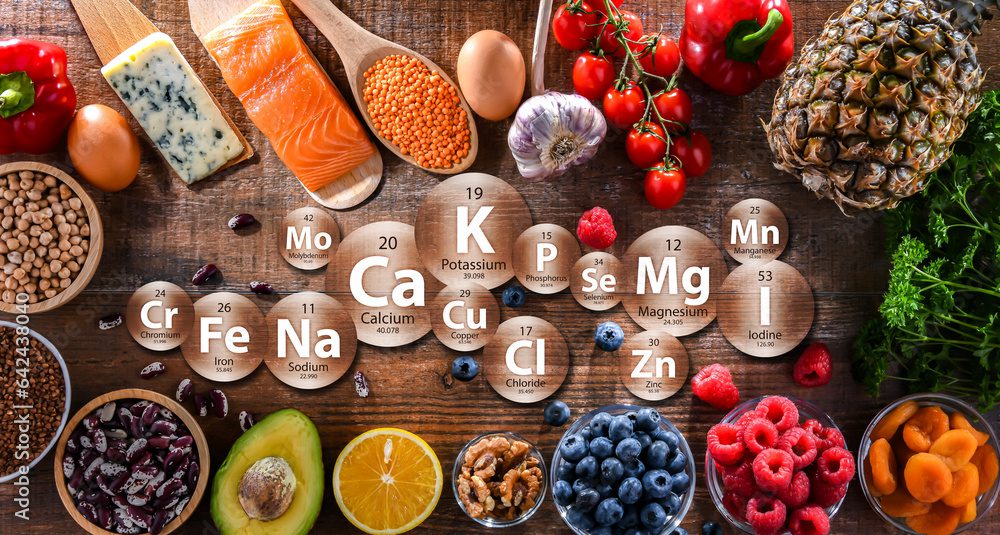The Role of Vitamins and Minerals: Diabetes Care

Every morning, Mrs Lata carefully checks her blood sugar before eating breakfast. She avoids sweets, takes her medicines on time, and even goes for walks in the evening. But still she feels drained, irritable and always wonders, “Why am I still not feeling fit?”
Mr Ravi carefully manages his diabetes, never misses a dose or a sugar test. Yet, he often feels mood swings, struggles with frequent headaches and unexplained weakness. He can’t help but think, “What more should I do to feel better?”
This is something many people with diabetes experience. We generally think diabetes management is only about sugar levels, but there is another hidden side to it. Just like a recipe feels incomplete without spices, your body struggles without the right vitamins and minerals. These tiny nutrients may not grab attention like medicines do, but they silently support your energy, mood, immunity, and blood sugar balance every single day.
In this blog, we will see why vitamins and minerals are important for diabetes management.
What are Vitamins and Minerals?
Vitamins and Minerals are called micronutrients, and our body needs them in small amounts to stay healthy and function properly. Most people can get the vitamins and minerals they need from a balanced diet and some sunlight.
Why are Vitamins and Minerals Important for People with Diabetes?
Vitamins and minerals are important for everyone, not just for people with diabetes. It keeps our body running smoothly by supporting every organ and system in our body. They are especially important for people with diabetes, as they have a comparatively weaker immune system.
Here are some commonly known Vitamins & Minerals and where you can find them:
Vitamins are:
| Vitamins | Dietary Sources |
| Vitamin A | Carrots, sweet potatoes, spinach, and mango. |
| Vitamin B1 (Thiamine) | Whole grains, seeds, nuts, and legumes. |
| Vitamin B2 (Riboflavin) | Eggs, dairy products, almonds, and leafy green vegetables. |
| Vitamin B3 (Niacin) | Found in meat, fish, whole grains, and peanuts. |
| Vitamin B5 (Panthothenic Acid) | Eggs, meat, broccoli and avocados. |
| Vitamin B6 | Bananas, chicken, fish and whole grains. |
| Vitamin B7(Biotin) | Eggs, nuts, seeds, and sweet potatoes. |
| Vitamin B9 (Folate) | Leafy greens, beans, peas, and citrus fruits. |
| Vitamin B12 | Fish, meat, eggs and dairy products. |
| Vitamin C | Oranges, guava, strawberries and bell peppers. |
| Vitamin D | Sunlight, fortified milk, eggs and fatty fish. |
| Vitamin E | Nuts, seeds, spinach and broccoli. |
| Vitamin K | Kale, spinach, broccoli and green beans. |
Minerals are:
| Minerals | Dietary Sources |
| Calcium | Milk, cheese, yoghurt, almonds and leafy greens. |
| Magnesium | Nuts, seeds, spinach, and whole grains. |
| Zinc | Meat, seafood, legumes and seeds. |
| Iron | Red meat, spinach, lentils and beans. |
| Potassium | Bananas, oranges, potatoes and tomatoes. |
| Sodium | Salt, processed foods and cheese. |
| Phosphorus | Meat, fish, dairy and nuts. |
| Iodine | Iodised salt, seafood and dairy products. |
| Selenium | Nuts (especially Brazil nuts), fish, and eggs. |
Why Is It Important for People with Diabetes to Eat Nutrient-Rich Foods?
Vitamins and minerals may be small in size, but they make a big difference, especially for people with diabetes. These nutrients help the body use the sugar the right way, protect the pancreas and keep your immune system strong.
Eating a variety of nutrient-rich foods like leafy greens, nuts, seeds, dairy products, whole grains and lean proteins or taking supplements if your doctor recommends them can keep the blood sugar steady. Making sure each meal is packed with vitamins and minerals is a simple and powerful way to manage diabetes.
Supplements like vitamin pills and mineral tablets can be useful when your body is lacking certain nutrients. They are usually recommended if a blood test shows a deficiency or if your diet alone can’t meet specific needs. But it doesnt mean everyone should take them every day by themselves without consulting their doctor.
Why Mindless Popping of Supplements Is a Bad Idea?
It’s tempting to think a supplement can replace a balanced diet, but that’s not true.
For most people, everyday healthy meals are enough to meet vitamin and mineral needs. Food naturally provides nutrients in the right balance, something a pill can’t always match.
Taking supplements without guidance may not be the best idea. That’s why it’s always better to check with your doctor before starting anything new, so you know it’s right for you.
Summary:
Eating a variety of healthy, nutrient-rich foods(functional foods) is one of the best ways to meet your body’s needs. These include foods like oats, nuts, seeds, berries, garlic, and yoghurt with probiotics, which provide extra health benefits beyond basic nutrition.
Most people can get the vitamins and minerals they need from a balanced diet and some sunlight. Sometimes, supplements may be helpful, but they should never replace healthy eating. Before taking any supplement, consult your doctor.
| As Hippocrates once said: “Let food be thy medicine and medicine be thy food.” |
How Can Fitterfly Help You?
Fitterfly’s Personalised Diabetes Management Program is designed to make things simpler and safer.
Click on the banner below.
Nutrition-First Approach: Learn how to get the right vitamins and minerals naturally from everyday foods.
Personalised Advice: Based on your health conditions, lifestyle and lab reports, Fitterfly experts guide you on whether you actually need supplements.
Safe Supplement Choices: Some supplements can affect blood sugar levels or clash with diabetes medicines. With Fitterfly, you know what is safe and what is not.
Holistic Care: Along with vitamins and minerals, the program also focuses on diet, exercise, sleep, and stress management, all of which play an important role in nutrient absorption and maintaining blood sugar balance.
📞 Call 08068507599 to speak to our team.
| Stay balanced. Stay healthy. Let Fitterfly guide you toward better diabetes management. |
This blog provides general information for educational and informational purposes only and shouldn't be seen as professional advice.
Frequently Asked Questions
Why are vitamins and minerals important for people with diabetes?
Vitamins and minerals are important for people with diabetes because they help the whole body stay healthy. But they do not directly lower blood sugar or replace insulin. Good diabetes care needs a balanced diet, exercise, and medicines recommended by your doctor.
Should I take supplements or get these nutrients from food?
Eating a balanced diet is best. Supplements should only be taken with the recommendation of your doctor.
Are there any risks with taking too many vitamins or minerals?
Yes, taking too much can be harmful, but before taking any supplement, always check with your doctor.
How can I get these nutrients naturally from my diet?
Include foods like leafy greens, nuts, seeds, whole grains, dairy, fruits, vegetables, and seafood to get the vitamins and minerals your body needs.





















